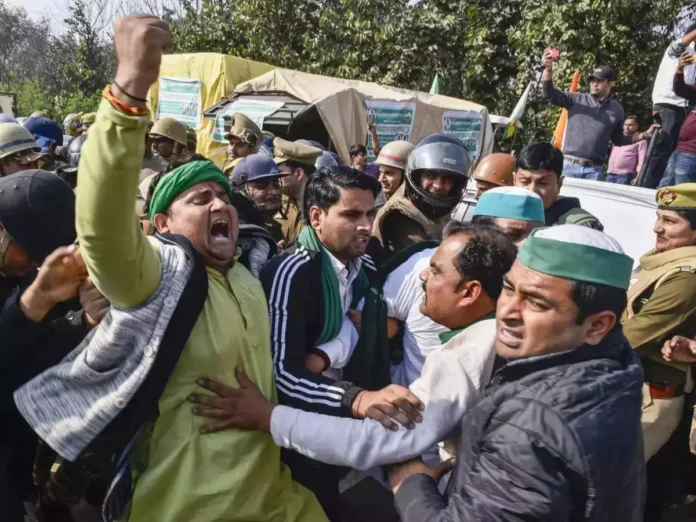The Supreme Court of India on Monday refused to entertain a Public Interest Litigation (PIL) seeking immediate clearance of blockages on National and State Highways in Punjab caused by farmers’ protests.
A bench comprising Justices Surya Kant and Manmohan emphasized that a similar issue is already under judicial review and that repetitive petitions cannot be entertained.
“We are already examining the larger issue. Initiatives have been taken in the ongoing case. Filing repetitive petitions unnecessarily clogs the judicial process,” the bench stated.
Details of the PIL:
The petitioner, Gaurav Luthra, who identified as a social activist from Punjab, sought directions for:
- Immediate Clearing of Blockages: Ensuring highways and railway tracks in Punjab, Haryana, and other regions are free from obstructions caused by protests.
- Public Convenience: Guaranteeing smooth passage for the public across affected areas.
- Restriction on Protests: Limiting protests to ensure essential routes remain open.
The petitioner argued that protests by farmers and unions were “illegal encroachments” that disrupted public life and caused hardships to commuters.
Court’s Response:
The Supreme Court highlighted the following:
- Pending Committee Work: In September, it constituted a committee led by retired Punjab and Haryana High Court Judge Justice Nawab Singh to address farmers’ grievances and demands.
- Repetitive Petitions: The court expressed dissatisfaction with individuals filing multiple PILs on the same issue, accusing some of pursuing “publicity interest” rather than genuine public welfare.
“We cannot entertain petitions that duplicate issues already under consideration,” the court observed.
Background of the Protests:
Farmers in Punjab, Haryana, and other states have been protesting for months, primarily demanding a legal guarantee for Minimum Support Price (MSP) and compensation for losses. Demonstrations at key locations, such as the Shambhu border, have resulted in disruptions to highways and railway services.
The apex court’s committee was tasked with negotiating a resolution while balancing the rights of protesters with public convenience.
Next Steps:
The Supreme Court has reiterated its focus on addressing the broader issue through the pending case, signaling that petitioners must await outcomes from this process.


